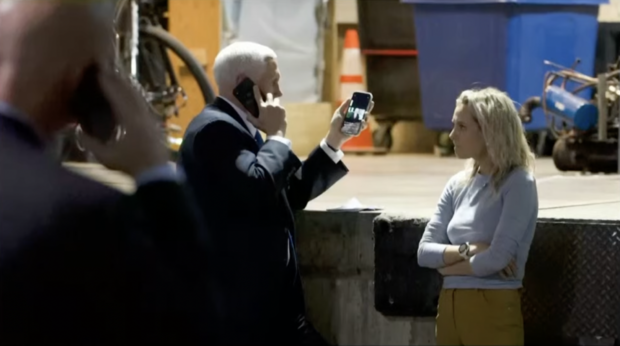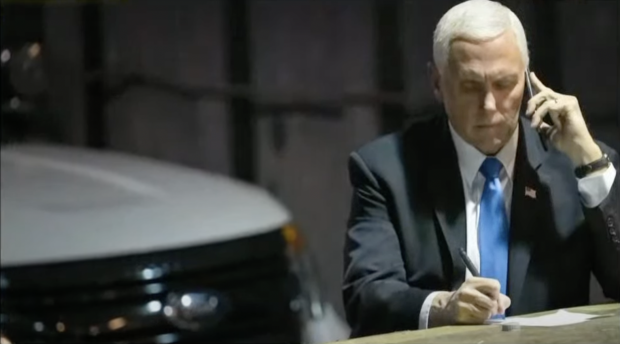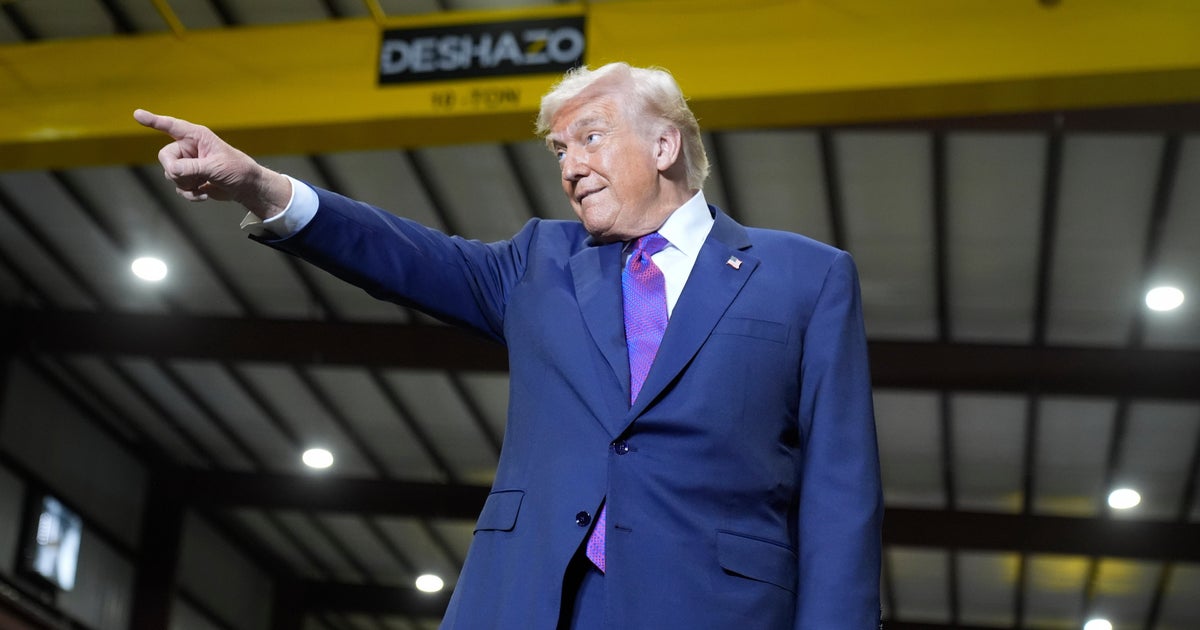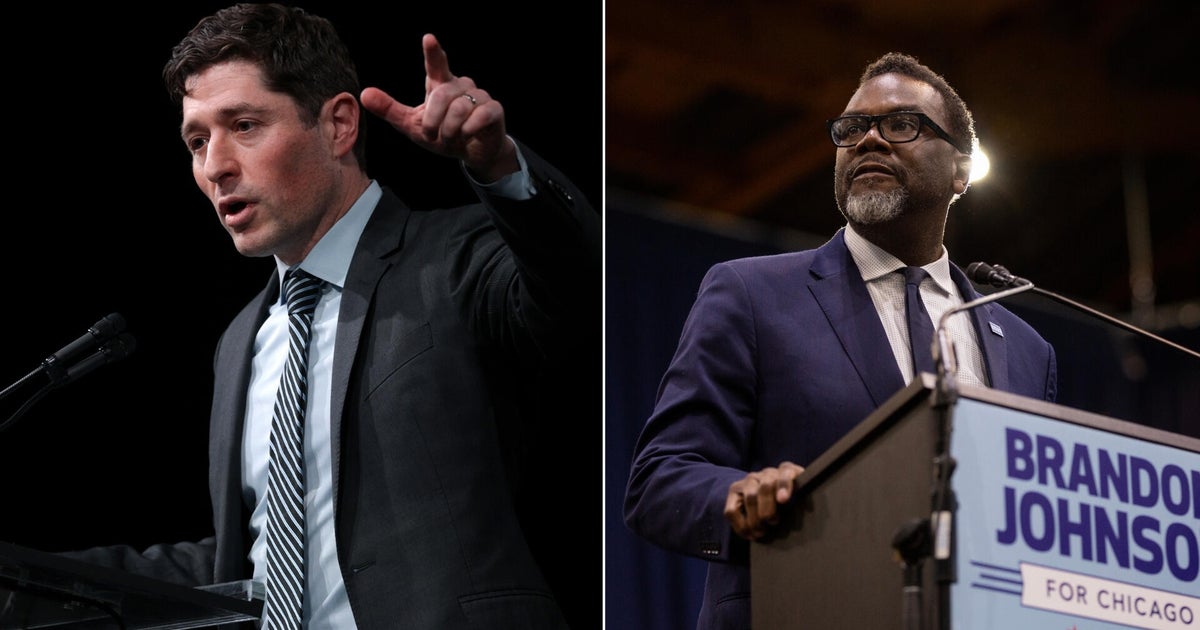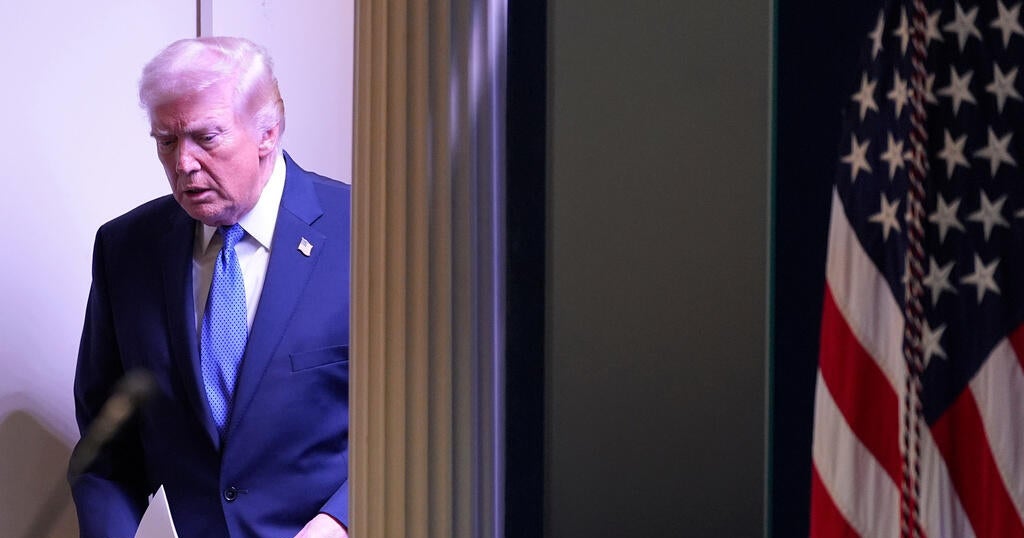8 revelations from Day 3 of the Jan. 6 committee hearings
The third day of the House Jan. 6 select committee's public hearings featured dramatic testimony from former Vice President Mike Pence's chief counsel, Greg Jacob, who testified about the pressure applied by then-President Donald Trump and lawyer John Eastman to overturn the 2020 election results on Jan. 6 during the joint session of Congress.
Eastman, Jacob said, argued there was legal and historical precedent for Pence to do so and proposed two avenues. Jacob recalled the first would entail rejecting electoral votes "outright," which Eastman said would be the more "aggressive option" and less politically palatable. The other possibility Eastman floated was that Pence could suspend the congressional proceedings, then issue a demand to disputed states to have their legislatures reexamine the election. Jacob predicted that if Pence were to take either of these actions on Jan. 6, it would result in "political chaos," and would create an untenable "constitutional jump ball."
Former federal Judge J. Michael Luttig, who also advised Pence on his Jan. 6 duties, told the panel what he advised Pence about the constitutionality of president's demands and what it would mean if he complied with Trump's request. And he warned that Trump and his allies pose "a clear and present danger to American democracy" even now because they have vowed to try to overturn the 2024 election in the same way they tried in 2020.
The first day of the Jan. 6 hearings provided an overview of the chaos of the day and revealed that several Trump administration officials didn't believe the president's claim that the election was stolen from him. On day 2, earlier this week, the committee built the case that Trump knew he had lost his reelection campaign and because of it, mounted an attack on our democracy, which culminated in the assault on the Capitol.
Here are some of the revelations from day 3 of the Jan. 6 hearings:
Pence doubted Founders would have put "one person in charge" of determining the outcome of a presidential election
Jacob and former Pence chief of staff Marc Short repeatedly emphasized that the vice president was skeptical from the outset of the arguments made by Trump and Eastman that the vice president had the power to subvert the election on Jan. 6.
Jacob told the committee that Pence's first thought was that there was no way the Founders "would have put one person in charge" of determining the outcome of the presidential election, "particularly not a person who had a direct interest in the outcome because they were on the ticket for the election, in a role to have a decisive impact on the outcome of the election.'"
Luttig said that had Pence complied with Trump's demand, it would have "plunged America into what I believe would have been tantamount to a revolution within a constitutional crisis in America," which he said "would have been the first constitutional crisis since the founding of the republic."
Eastman thought if Pence overturned the election results and faced a legal challenge, they'd lose in the Supreme Court. But he also believed the court would not weigh in.
During a discussion about Eastman's theory that the vice president had the authority to unilaterally declare the winner of the presidential election, Jacob revealed that Eastman conceded that if asked to decide the issue, the Supreme Court would reject his interpretation of the 12th Amendment and Electoral Count Act.
"We had an extended discussion, an hour-and-a-half to two hours, on January 5. And when I pressed him on the point, I said, 'John, if the vice president did what you are asking him to do, we would lose 9-to-nothing in the Supreme Court, wouldn't we?'" Jacob recalled. "And he initially started it, 'Well, I think maybe you would lose only 7-2,' and after some further discussion acknowledged, 'Well, yeah, you're right, we would lose 9-nothing.'"
Still, Eastman said he did not believe the Supreme Court would even agree to hear such a case.
According to Jacob, Eastman felt the court would invoke the political question doctrine — that is, the idea that this would be a political issue, rather than a legal issue — and not get involved.
Names Trump called Pence during phone call on Jan. 6
On the morning of Jan. 6, Trump's family and aides were in the Oval Office — Ivanka Trump was there, and so were Eric and Donald Trump Jr. and their wives. There wasn't a "specific, formal discussion," Ivanka Trump recalled, according to her recorded testimony. The president was on the phone with Pence — former Trump attorney Eric Herschmann, who was also in the Oval Office, recalled that initially, the conversation was calm, and he wasn't paying much attention. But then it grew "heated," he said. Ivanka Trump said it was "pretty heated."
Former Trump aide Nicholas Luna didn't remember specifically what the president said, but he told the committee that Trump told Pence he had "made the wrong decision four or five years ago" — presumably in selecting Pence as his running mate.
Luna said Trump was using "a different tone than I'd heard him take" with Pence. Luna recalled that Trump insulted Pence: "'Wimp' is the word I remember."
Ivanka Trump's former chief of staff, Julie Radford, said it was an "upsetting conversation," and she testified that Trump called Pence "the P-word."
Trump tweeted attack against Pence after he was told violence had begun
According to committee member Rep. Pete Aguilar, former White House aides Ben Williamson and Sarah Matthews testified that then-White House chief of staff Mark Meadows went to tell Trump about the violence beginning to ensue at the Capitol before Trump sent a tweet at 2:24 p.m. attacking his own vice president, who was in the Capitol at the time.
In that tweet, Trump claimed Pence didn't have the "courage" to protect the country by overturning the election results.
"The situation was already bad, and so it felt like he was pouring gasoline on the fire by tweeting that," Matthews testified before the committee, according to recorded video.
The committee released new photos showing Pence in a secure location in the Capitol complex after he was evacuated by the Secret Service from the Senate chamber, and Jacob said the vice president refused to leave the building even as law enforcement struggled to gain control of the situation.
Underscoring the threat to Pence on Jan. 6, a confidential informant told the Justice Department that members of the Proud Boys would have killed "anyone they got their hands on," including House Speaker Nancy Pelosi and Pence "if given the chance," according to court filings in the case against Dominic Pezzola, a member of the Proud Boys who is facing numerous charges stemming from Jan. 6, including seditious conspiracy.
Jacob said Trump never called Pence to check on him, which the vice president and his wife reacted to "with frustration."
John Eastman sought presidential pardon in days after Capitol assault
An email obtained and released by the committee shows that days after the Jan. 6 attack, Eastman asked Rudy Giuliani, Trump's personal lawyer, to ensure he would be included on a list of prospective recipients of presidential pardons.
"Third, I've decided that I should be on the pardon list, if that is still in the works," the email from Eastman to Giuliani read, as displayed by the panel.
Eastman did not receive a pardon, and the committee issued a subpoena for his testimony. During a deposition before the panel, a clip of which was played, Eastman invoked his Fifth Amendment right against self-incrimination 100 times, Aguilar said.
Eastman was also advised by Eric Herschmann, a lawyer in the White House, to retain a criminal defense lawyer.
In an interview with committee investigators, a clip of which was played during the hearing, Herschmann recalled receiving a call from Eastman after the January assault, during which the conservative law professor began to discuss the Georgia election results and future court proceedings.
"I said to him, 'Are you out of your effing mind?' I said, I only want to hear two words coming out of your mouth from now on: 'orderly transition.' I don't want to hear any words coming out of your mouth no matter what, other than 'orderly transition.' Repeat those words to me,'" Herschmann told House investigators.
Herschmann said the conversation with Eastman continued: "Eventually he said 'orderly transition.' I said, 'Good, John. Now I'm going to give you the best free legal advice you're ever going to get in your life: Get a great effing criminal defense lawyer. You're gonna need it.' And then I hung up on him."
Eastman conceded other vice presidents would not have power to overturn election, Pence lawyer says
Jacob testified that Eastman admitted that other vice presidents would not have the power to overturn the election.
Greg Jacob said he met with Eastman the day before the Jan. 6 riot trying to "persuade him to acknowledge he was just wrong" in his belief that Pence could reject electors.
In that conversation, Jacob said he invoked the 2000 election, when it was unclear on election night whether George W. Bush or Al Gore had won. Gore was vice president at the time.
"I thought this had to be one of the most powerful arguments: 'John, back in 2000, you weren't jumping up saying Al Gore had this authority to do that. You would not want Kamala Harris to be able to exercise that kind of authority in 2024, when I hope Republicans will win the election. And I know you hope that too, John,'" Jacob recounted.
"And he said, 'Absolutely, Al Gore did not have a basis to do it in 2000. Kamala Harris shouldn't be able to do it 2024 — but I think you should do it today.'"
Eastman continued to pressure Pence to delay election certification — even after the Jan. 6 assault
After law enforcement cleared the Capitol of the rioters and Congress returned to complete the tallying of state electoral votes, Eastman resumed his crusade to pressure Pence to delay the certification of the election results and send the issue back to the states, the committee revealed.
Jacob recalled receiving an email from Eastman late on the evening of Jan. 6 after Pence had delivered an address to the nation in which he claimed that numerous violations of the Electoral Count Act had occurred that day — specifically, the vice president's speech, as well as speeches from congressional leaders and the time it took to debate an objection to Arizona's electoral votes — which was delayed for hours because of the assault on the Capitol.
Eastman, Jacob said, "implored me, 'Now that we have established that the Electoral Count Act isn't so sacrosanct as you have made it out to be, I implore you one last time, can the vice president please do what we've been asking him to do these last two days? Suspend the joint session, send it back to the states.'"
The select committee obtained the email, sent from Eastman to Jacob at 11:44 p.m., Jan. 6. It read: "So now that the precedent has been set that the Electoral Count Act is not quite so sacrosanct as was previously claimed, I implore you to consider one more relatively minor violation and adjourn for 10 days to allow the legislatures to finish their investigations, as well as to allow a full forensic audit of the massive amount of illegal activity that has occurred here."
Jacob said he shared Eastman's proposal with Pence several days later, and the vice president called it "rubber-room stuff."
"I understood it to mean that after having seen play out what happens when you convince people that there is a decision to be made in the Capitol legitimately about who is to be the president and the consequences of that, that he was still pushing us to do what he had been asking us to do for the previous two days, that that was certifiably crazy," Jacob said.
Jan. 6 committee wants to talk with Ginni Thomas, chairman says
Democratic Rep. Bennie Thompson, the chairman of the Jan. 6 panel says that the committee is interested in hearing from Supreme Court Justice Clarence Thomas' wife, Ginni Thomas, he told reporters Thursday.
"Some information refers to Ginni Thomas, and we think it's time that we would, at some point, invite her to come talk to the committee," he said.
The heightened interest in her comes after the Washington Post and CBS News reported Wednesday that the panel obtained email exchanges between her and John Eastman. The New York Times also reported that Eastman wrote in a Dec. 24, 2020, email there was a "heated fight" among the justices about whether to take up a case involving Trump's efforts to overturn the election.
Eastman clerked for Thomas at the Supreme Court and for Luttig when he served on the 4th U.S. Circuit Court of Appeals.
